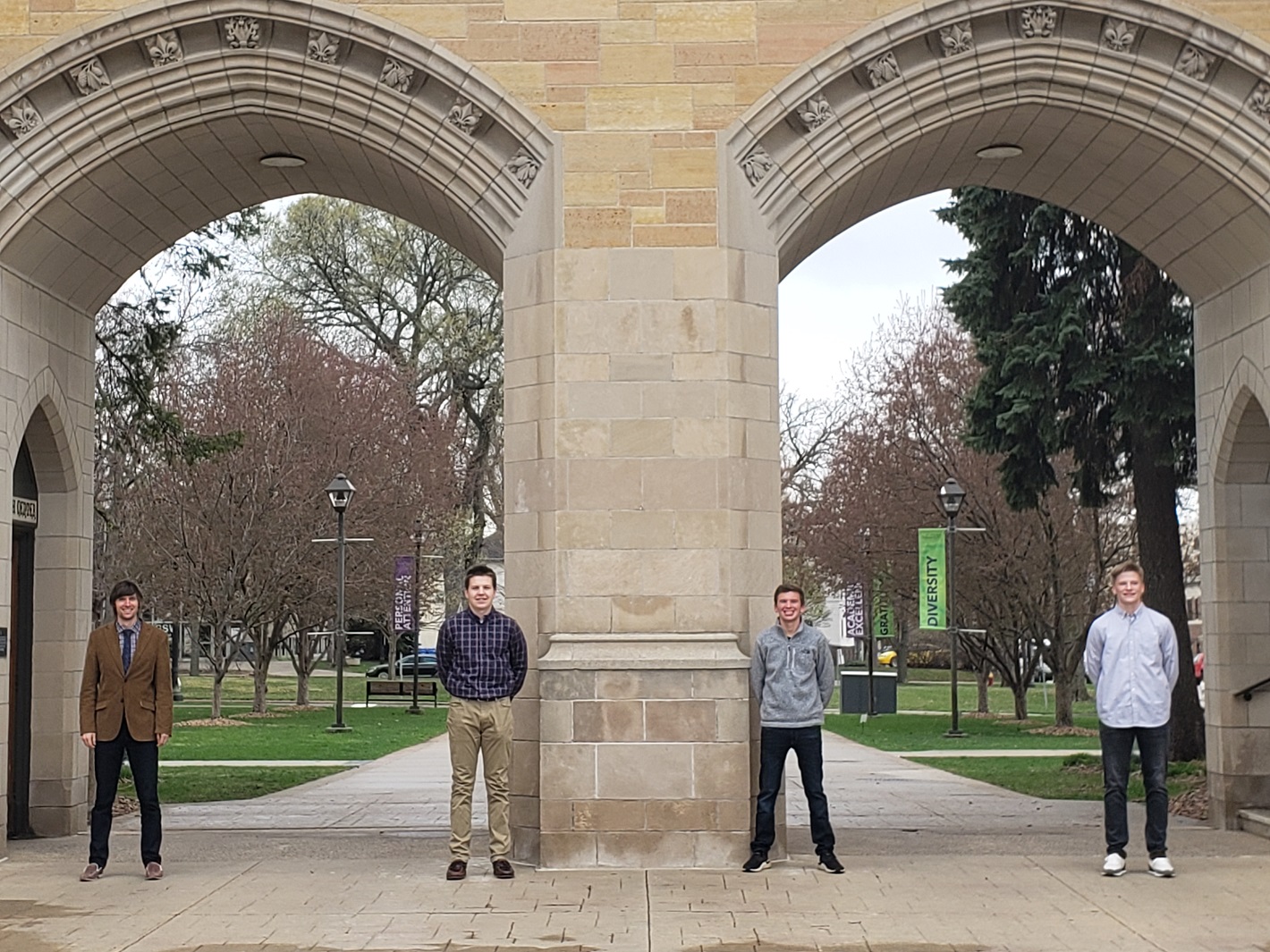Economics majors Mark Neuman and Patrick McLean, along with accounting major/economics minor Scott Kalthoff, comprised the winning team. They built models to predict the outcomes of the 2021 NCAA Division I Men’s Basketball Tournament, triumphing over 50 teams, mainly from the Midwest. Teams from Syracuse University and Cornell College also took part.
MinneAnalytics Madness included teams of graduate and undergraduate students exploring real-world data while enhancing and showcasing their skills. Teams constructed their tournament bracket using their predictive model.
“This competition was a great experience to learn outside of the classroom,” Neuman said. “I am also grateful for the opportunity to participate and represent the university in this competition because it allowed my peers and me to collaborate and develop real-world analytical skills.”
This was the first year of MinneAnalytics Madness. The organization typically has a data competition each fall with teams from around the Midwest. The competition changes every year. Previous challenges, for example, have involved teams forecasting future prices for soybean contracts or predicting who would be susceptible to diabetes based on an analysis of a health care dataset.
The fall 2020 competition wasn’t held due to the pandemic, and MinneAnalytics was looking for a replacement.
Joe Lambrecht, who is majoring in computer science and data analytics, conceived the idea for the replacement competition. (Because he was involved in the creation, Lambrecht didn’t compete on a team.)
“As the special programs director of the Data Science and Analytics Club, I reached out to MinneAnalytics, and they really liked the idea,” Lambrecht said. “They wanted us to partner with them to bring [the competition] to the larger data community throughout Minnesota and the Midwest.”
The competition was open to undergraduate and graduate students, with each team requiring a faculty or staff adviser. In addition, the event featured an open division allowing professionals from the community to participate. Top teams – except in the open division – received cash prizes.
“St. Thomas not only won the recent MinneMUDAC data science competition beating out the 37 other undergraduate teams, they had the highest score overall, beating out graduate teams, professionals, and all the human handicappers,” MinneAnalytics co-founder Dan Atkins said.
Tyler Schipper, assistant professor in data analytics and economics, served as the winning team’s faculty adviser. The team went back to the results from 2016, 2017 and 2018 to create models to predict the 2019 results. They then looked at which model fared the best and used that one to predict the 2021 results. Each game in the competition wasn’t weighted equally; teams would get more points for an underdog winning instead of a higher-seeded team, for instance.
“That led them to choose a few more upsets in early rounds,” Schipper said. “It was like a time series forecasting approach, where we take some out of sample period and we use models to predict some real results and then we choose our model based on how it did in the real-life predictions setup. My group’s process was pretty involved, but the model itself was very simple.”
Data Science and Analytics Club members benefited from a guest speaker, Edward Egros of Pepperdine University, who spoke to the group about March Madness and factors to focus on, such as offensive efficiency.
Assistant Professor in the Department of Operations and Supply Chain Management Kyle Goldschmidt, who advised another of the three St. Thomas teams that participated in the competition, said that the biggest surprise was the underperformance of Big Ten teams in the tournament.
Financial management major Logan Romero, who competed on Goldschmidt’s team, leaned on his lessons from Goldschmidt’s Decision Analysis course on how to clean up data to make it easier to use in the competition.
Considering the popularity of MinneAnalytics Madness, it’s a safe bet that it will be back next year.
“It was a great way to meet people, especially in COVID times,” McLean said. “It was also a great way to explore data and trends with a topic that we had all grown up watching year after year.”







